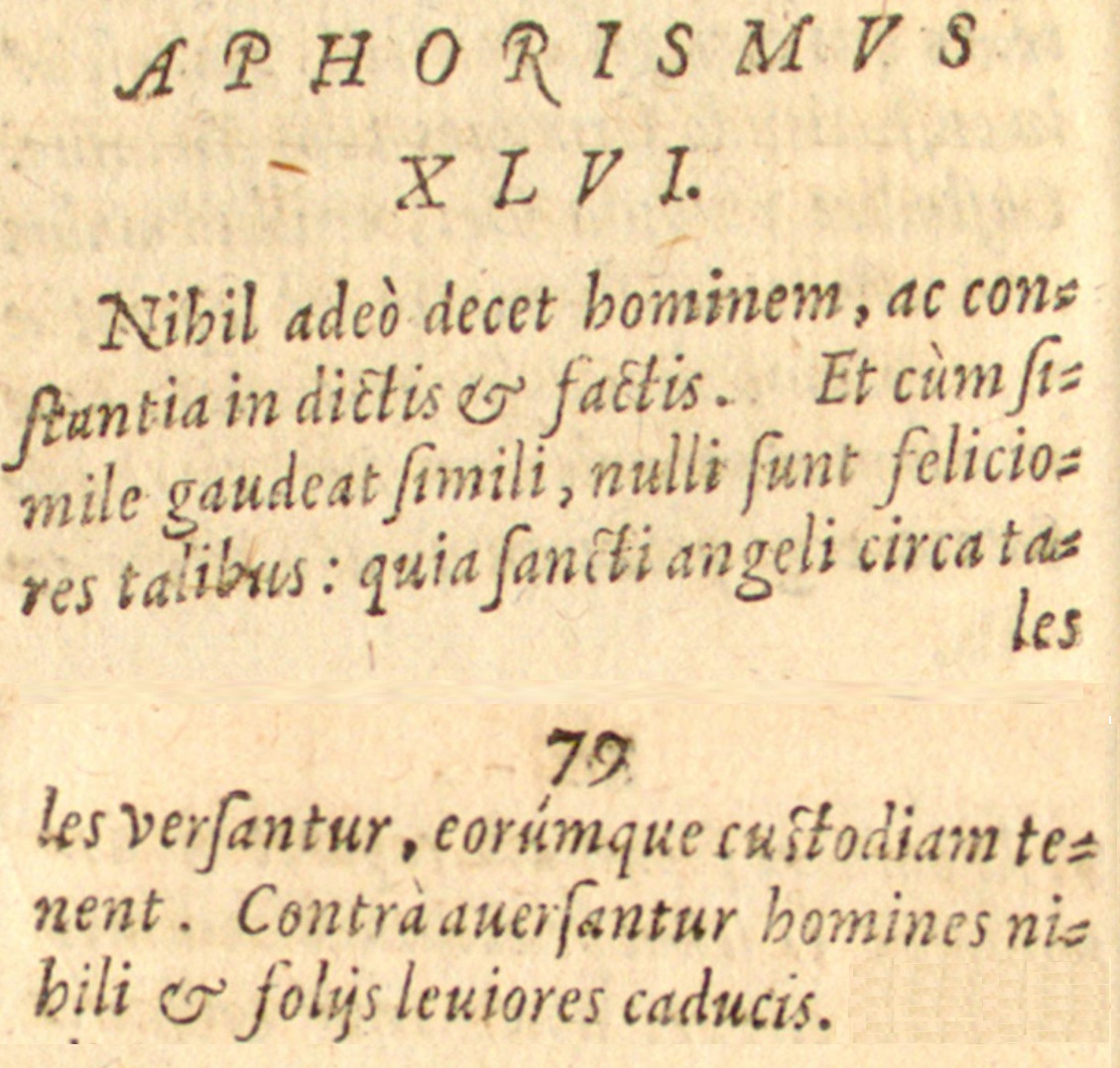Angels
want us to be steadfast
So claims aphorism 46 of a 16th century manual of angelic magic
published in Basle* (Switzerland). The work was composed in Latin;
hence the title De magia veterum (On the Magic of the
Ancients) and hence the language of the following quote:
Nihil adeň decet hominem, ac constantia in dictis & factis.
Et cum simile gaudeat simili, nulli sunt feliciores talibus : quia
sancti angeli circa tales versantur, eorumque custodiam tenent. Contra
auersantur homines nihili & foliis leuiores caducis.
This text was translated by Robert Turner and was lumped
together with Heinrich Cornelius Agrippa von Nettesheim’s Fourth book
of Occult Philosophy, which was published in London in 1655
(facsimile available here).
His translation of aphorism 46 reads as follows:
There is nothing so much becometh a man, as constancy
in his words and deeds, and when the like rejoyceth in
his like; there are none more happy then such, because the holy Angels are
conversant about such, and possess the custody of them : on the contrary,
men that are unconstant are lighter then nothing, and rotten leaves.
Or as Joseph H. Peterson, a modern translator of Arbatel (which is how De magia veterum is commonly known in some
circles), puts it in his introduction to his translation of this famous
grimoire: ‘It often seems that people who complain the most suffer the
worst luck. Perhaps the simplest explanation is the one found in Arbatel,
that we attract unseen entities
that influence such things (Aphorism 46)’ [p.8, Arbatel,
Concerning the Magic of Ancients, Lake Worth, FL, USA, 2009].
Personally, I would rather forget about this so-called Law of Attraction
(highly popular with esotericists, occultists and all those who believe that
there is an invisible realm which is affecting our lives) and be prepared to
consider the possibility that spiritual growth may occur as a result of
suffering, thereby still leaving open the bestowing of some angelic grace
upon the person who is being tested.
* Until very recently, the English versions of
several Swiss toponyms would follow the French spellings, e.g. Berne, Basle,
Grisons, Fribourg, etc., because, as they were being persecuted in England
in the 16th century, many Protestants fled to Geneva, which had converted to
that faith in 1536. So that when they were able to return to England with
the restoration of the Protestant faith in that country, in addition to the
Geneva Bible, they brought back with them French spellings of Swiss place
names.
Lausanne,
7th June 2020

